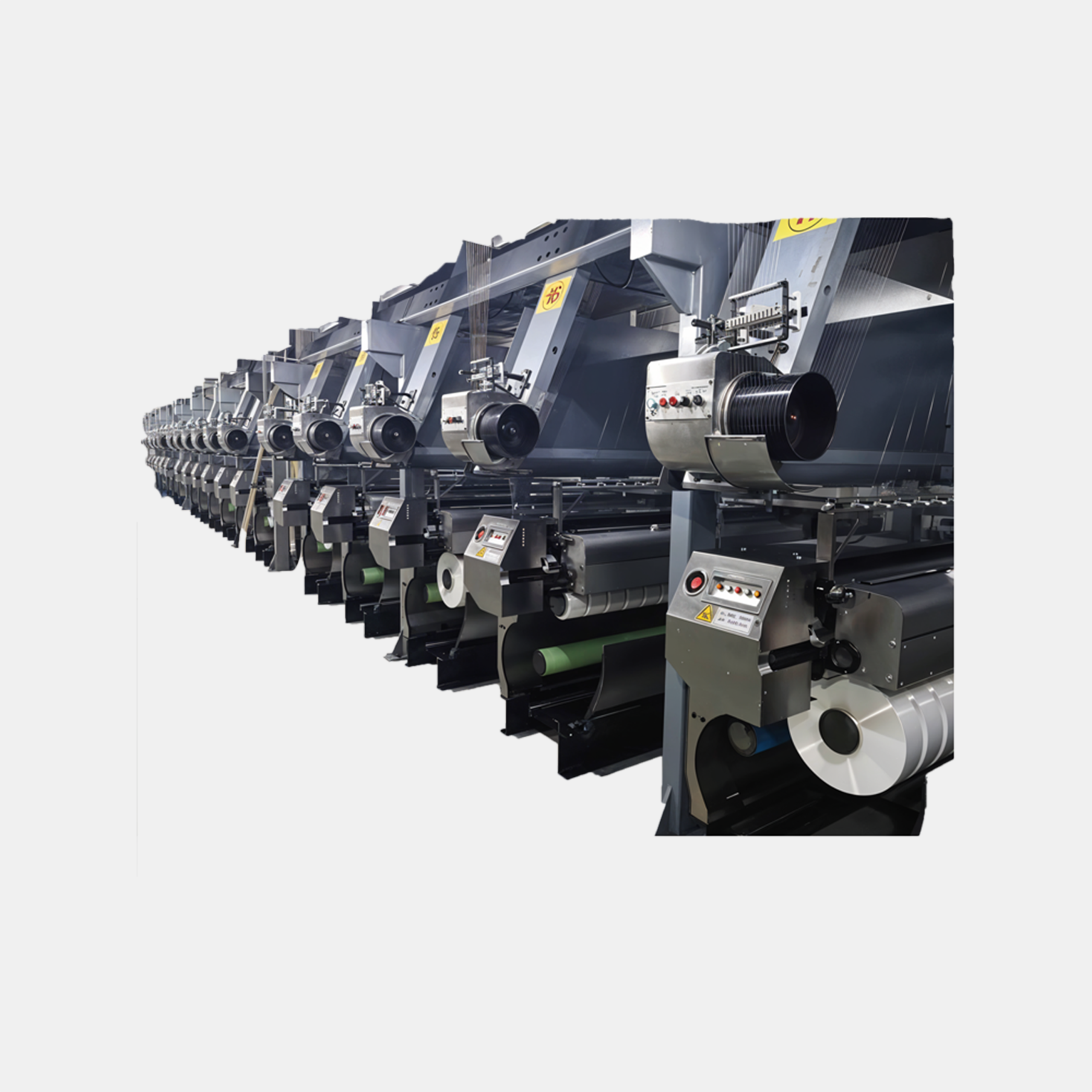Polyester Yarn Production Line
Spinning is one of the most basic steps in the textile production chain, during which raw materials such as polyester, nylon, or recycled materials are converted into yarn that can be used in weaving and sewing. Modern spinning, by utilizing precise equipment and high automation, has been able to increase productivity and maintain consistent product quality.

The importance of yarn in the textile chain
Yarn is not just an intermediate product; the quality, durability, softness, and performance of many fabrics, garments, carpets, and even industrial composites directly depend on the quality of the yarn.
For this reason, the correct choice of yarn type and its production method are of great importance for the success of the final product.
Sustainable Development in Spinning
With increasing global pressure to preserve the environment, modern spinning lines are now moving more towards the use of recycled materials (such as PET bottles) and reducing energy consumption. This approach is not only cost-effective, but also responds to the market’s need for environmentally friendly products.
Main role of the equipment
These machines are designed to produce a variety of industrial and textile yarns—including polyester, nylon, spandex, carbon fiber and specialty filaments—with the ability to use fresh or recycled raw materials and produce yarns with different thicknesses (dtex) and properties.
Yarn Production Process
1. Melting and Extrusion
Conversion of raw materials (chips or scrap) into a melt with precise temperature and pressure control.
2. Filtering and Spinning
Removal of impurities and filament shaping through spinpacks and nozzles.
3. Quenching/Cooling
Structural stability of the yarn through side or cross cooling systems.
4. Lubrication and Finishing
Improving the yarn surface with lubricants to reduce friction and increase quality.
5. Drawing
Strengthening the fiber structure by controlled drawing, usually using heated rollers.
6. Winding
Wrapping the yarn onto a bobbin with constant tension and precise shaping.
Features and benefits:
Material flexibility: support for fresh or recycled chips, engineered fibers and composites.
A variety of thicknesses: Production of yarns from fine microfilament to thick industrial and carpet yarns.
Precise process control: PLC and inverter systems for temperature, pressure, speed and tension control.
Energy saving: Modular design with energy-efficient and efficient cooling systems.
High productivity: High production speed and consistent quality of yarns for use in a variety of industries.
Wide application: Textile, packaging, carpet, industrial textiles, technical and industrial clothing, carbon fiber.
Key points:
The yarn manufacturing process includes the steps of melting, filtering, spinning, cooling, oiling, drawing and collecting.
Each of the production lines is designed for specific groups of fibers and industrial or textile applications.
The ability to use recycled materials and new composites allows the process to be more economical and environmentally friendly.
Equipment types
POY and FDY spinning
Designed to produce pre-oriented or fully drawn yarn with the ability to use PET, PA6, PA66 chips, and recycled bottles.
Special PET bottle flakes line
Suitable for converting PET flakes into POY yarn, with a two-stage filtration system and booster pump for uniform melt quality.
BCF carpet spinning
Producing thick yarns suitable for carpets by combining materials such as PET, PA6, PP and the ability to add PET flakes to reduce costs and maintain quality.
PP-FDY spinning
Production of PP filament yarn in the range of 200–2000dtex with precise temperature and tension control and effective cooling system.
Melt spandex (TPU) spinning
Production of spandex yarns in thicknesses of 15–40dtex with extruder and cooling system and automatic or manual twisting.
Spinning of special filaments and composites
Production of multicomponent yarns (such as PET–PA6 or PET–PTT) with elastic properties suitable for clothing and special textiles, as well as production of carbon fiber with more than 95% carbon, for high-performance industries.
The future of fiber spinning
As technology advances, new production lines are able to produce yarns with very specific properties—antibacterial, flame-retardant, conductive, or yarns used in sportswear and military or even medical applications.
These yarns are part of a new wave that will transform the future of textiles.
Contact us
For more information and advice on polyester yarn, contact our experts.




